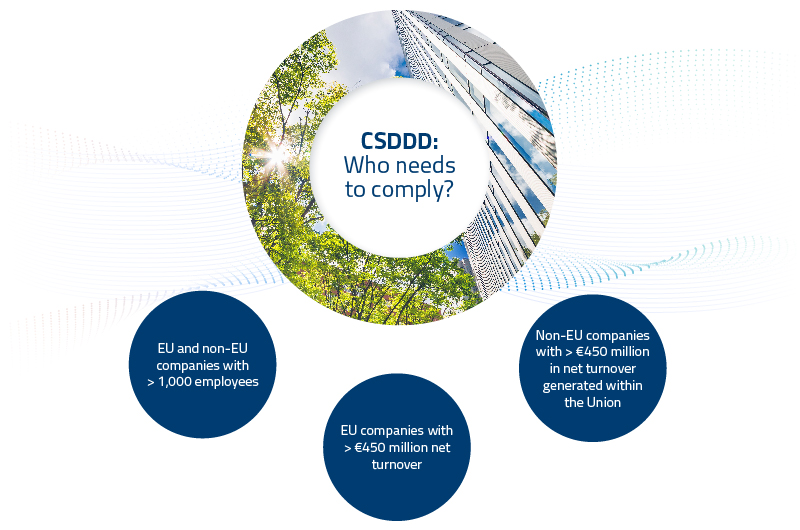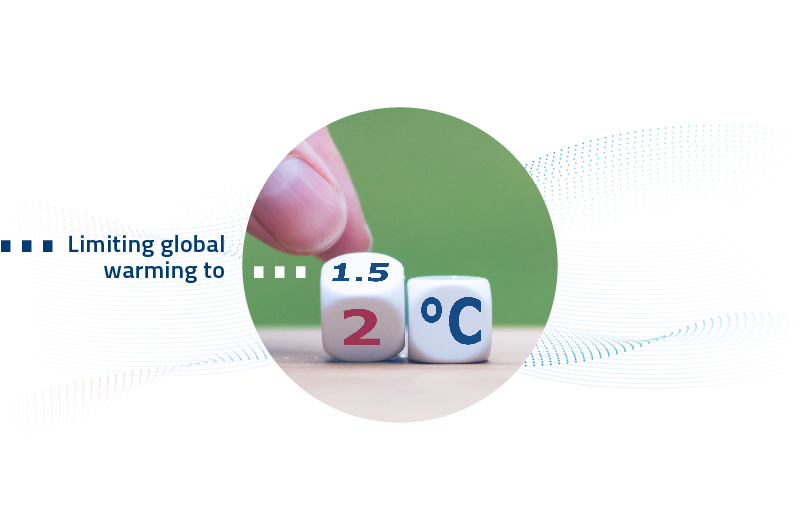The Corporate Sustainability Due Diligence Directive (CSDDD) is a legislative initiative by the European Union (EU) addressing the environmental and social impacts of global supply chains. Its primary focus is to establish rules for companies to identify, prevent, mitigate, and account for adverse impacts of their activities on human rights and the environment. This Directive targets large companies outside the EU if they operate within the EU market.
LATEST CSDDD UPDATES
On April 24, 2024, the European Parliament and Council approved a watered-down version of the CSDDD. With a vote of 374 to 235, the Directive has cleared a major legislative hurdle toward its implementation, following a tumultuous period of negotiations and revisions, and the failure to pass an earlier version.
The revised CSDDD reflects substantial compromises. The Directive now covers fewer companies and extends the timeline for full implementation, easing some concerns about the regulatory and legal burdens on businesses.

WHO NEEDS TO COMPLY WITH THE CSDDD NOW?
Initially including companies with 500 employees and €150 million in revenue, now the CSDDD addresses those with 1,000 employees and €450 million—reducing its scope to approximately one-third of its original extent. The updated CSDDD is expected to impact approximately 5,500 large EU companies, a significant reduction from the 16,000 originally covered.
CSDDD TIMELINE
The implementation will be phased, starting with the largest companies in 2027 and gradually applying to smaller firms by 2029. See below:
- Companies with over 5,000 employees and a turnover of €1.5 billion will have three years to comply (from 2027).
- Companies with over 3,000 employees and a turnover of €900 million will have four years (from 2028).
- Companies with over 1,000 employees and a turnover of €450 million, and for companies having entered into franchising or licensing agreements with over €80 million turnover in the EU and €22.5 million in royalties will have five years (from 2029).

CSDDD REQUIREMENTS
The CSDDD’s journey originally began in 2020 with studies by the European Commission on sustainable corporate governance and due diligence requirements in supply chains. However, the path to this Directive’s final approval was not without its challenges, underscoring the complexity of the entire process. Political resistance, delays, and threats of non-support from key member states like Germany and Italy, primarily due to concerns over the Directive’s potential to impose excessive bureaucratic and legal challenges on companies, were major hurdles.
In its essence, the CSDDD requirements include:
- identify and assess (due diligence) adverse human rights and environmental impacts;
- prevent, mitigate and bring to an end / minimise such adverse impacts; and
- adopt and put into effect a transition plan for climate change mitigation which aims to ensure—through best efforts—compatibility of the company’s business model and strategy with limiting global warming to 1.5 °C in line with the Paris Agreement.
Worth noting, the requirements are not limited to the company’s own operations, they extend to a company’s upstream and downstream business.

WHAT DOES THE CSDDD’S APPROVAL MEAN FOR EU MEMBER STATES AND COMPANIES?
EU member states will now have to provide businesses with comprehensive online resources detailing their due diligence responsibilities through user-friendly portals, which will include the European Commission’s guidance.
In addition, member states will have to establish or appoint a regulatory authority mandated to oversee compliance and enforce penalties on firms that fail to meet their obligations. Enforcement measures will range from public exposure—commonly referred to as “naming and shaming”—to imposing fines that could amount to up to 5% of a company’s global net turnover.
To enhance cooperation and the sharing of best practices, the Commission will set up the European Network of Supervisory Authorities. Furthermore, companies found violating their due diligence duties will be held accountable for any resultant damages and will be required to provide full compensation to the affected parties.
Over the next three years and depending on their sizes and revenues, companies will have to assess the changes that must be made to their current operational strategies, including procurement processes, partnerships with vendors, supply chain logistics, product R&D, business models, etc. Businesses will need to invest in end-to-end supply chain traceability solutions to prove they adhere to the CSDDD’s requirements.
In sum, the CSDDD is a transformative step forward for global corporate accountability and sustainable business practices. It paves a whole new way toward environmental stewardship and social responsibility.
RELATED POSTS

EU Corporate Sustainability Reporting Directive
The Corporate Sustainability Reporting Directive (CSRD) was published in the the Official Journal of the European Union on December 16, 2022. It requires certain companies to provide reports on sustainability-related matters, in line with a set of standards.

5 Key Insights into EUDR Compliance
On June 29, 2023, the European Union’s Regulation on Deforestation-Free Products (EUDR) came into effect and will become applicable to most companies conducting business in the EU.

OPTCHAIN FOR EUDR COMPLIANCE
Optchain’s EUDR software links commodities to their production plots using data capture tools tailored to your supply chain, operations and processes.
